While pointing out that the country is continuing its march to be at par with digitally developed nations like the US, China, Japan and South Korea, the Indian government yesterday said various initiatives in this regard have also resulted in job opportunities with further boost to come from the recently-launched scheme to elevate wireless Internet connectivity, PM-WANI.
“Initiatives (under the National Digital Communications Policy-2018) taken by the government and telecom service providers have boosted economic activity such as e-commerce, telecom operations, cable TV operations, etc. in the remote and difficult areas of the country. This has resulted in creating several job opportunities. The recently approved PM-WANI framework will further boost such economic activities and create sizeable number of jobs and encourage entrepreneurs,” said Sanjay Dhotre, junior minister of Communications, Electronics and Information Technology.
Asked in Parliament whether the government was making any special efforts to achieve 10 million Wi-Fi hotspots by 2022 as proposed earlier, the Minister said in Lok Sabha (Lower House of Parliament) at present about 500,000 Wi-Fi access points were working across the country that’s likely to get a further leg-up under a new scheme.
“The government has recently approved `Prime Minister Wireless Access Network Interface (PM-WANI)’ framework to enhance proliferation of broadband across the country through public Wi-Fi networks. This framework envisages setting up of public Wi-Fi hotspots by entrepreneurs,” the Minister added.
PM-WANI is scheme that envisages to leverage public Wi-Fi networks for delivery of broadband services. This is sought to be facilitated by rolling out WANI infrastructure with the broadband services being provided under distributed architecture and unbundling of infrastructure to improve performance by different players under the WANI eco system.
According to Dhotre, digital communications is playing a central role in driving the larger economic activities in the country. The sector has contributed to significant uptake of services in e-commerce, fintech, health tech, edtech and agri tech. “Consumption of these services has led to five times growth of the wireless data consumption in the country. In parallel, average per GB tariff has dropped by almost 95 per cent in (the last) four years,” he explained.
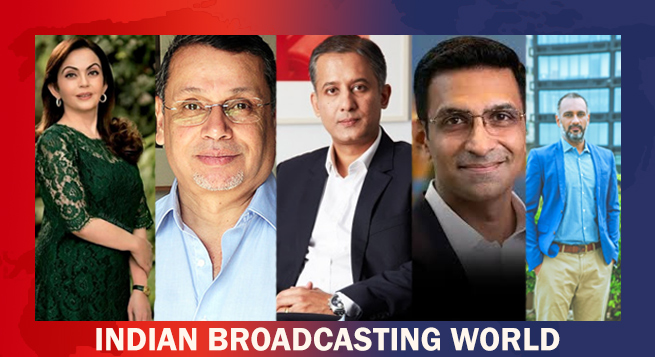 Kevin Vaz, Kiran Mani, Sanjog Gupta to head 3 verticals of JioStar
Kevin Vaz, Kiran Mani, Sanjog Gupta to head 3 verticals of JioStar 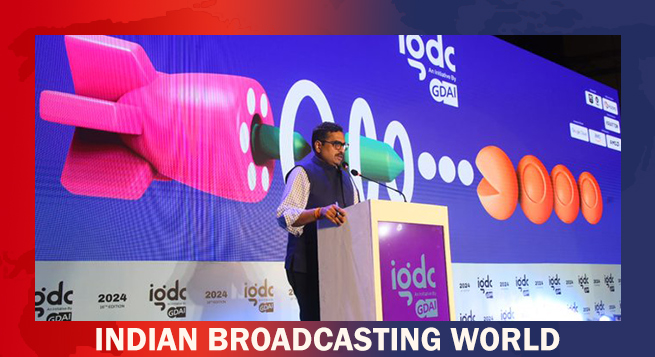 Govt & industry to prime gaming space for global dominance: MIB Secy Jaju
Govt & industry to prime gaming space for global dominance: MIB Secy Jaju 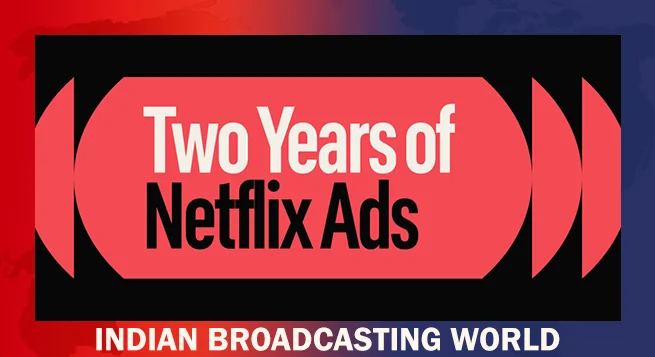 Netflix ad-supported tier touches 70mn MAUs globally
Netflix ad-supported tier touches 70mn MAUs globally 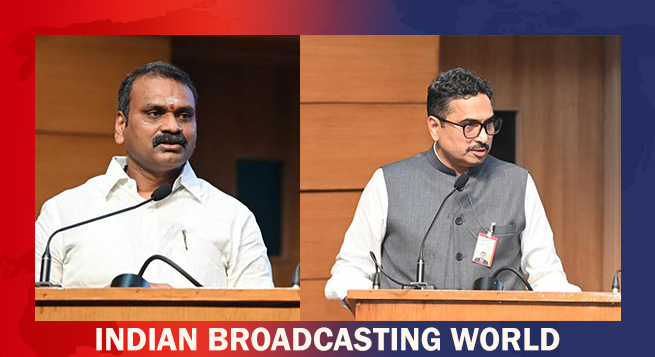 Minister Murugan likens IFFI to Cannes fest; ‘Better Man’ opening film
Minister Murugan likens IFFI to Cannes fest; ‘Better Man’ opening film  Release date of Pratik Gandhi, Divyenndu-starrer ‘Agni’ announced
Release date of Pratik Gandhi, Divyenndu-starrer ‘Agni’ announced 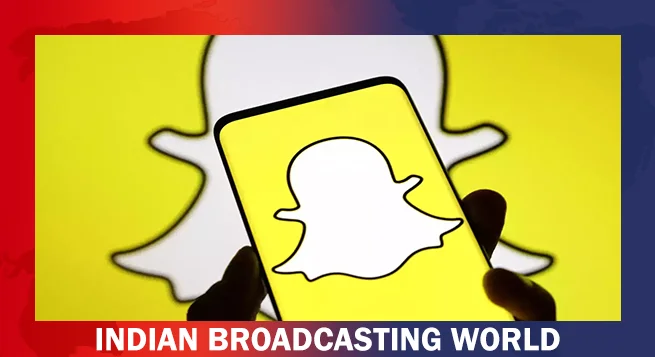 Snapchat introduces enhanced teen safety features
Snapchat introduces enhanced teen safety features  Sony BBC Earth unveils anthology ‘Earth’s Handpicked Tales’
Sony BBC Earth unveils anthology ‘Earth’s Handpicked Tales’  Prime Video to premiere ‘Yudhra’
Prime Video to premiere ‘Yudhra’  Tata Play Binge announces family-friendly movie lineup
Tata Play Binge announces family-friendly movie lineup 








